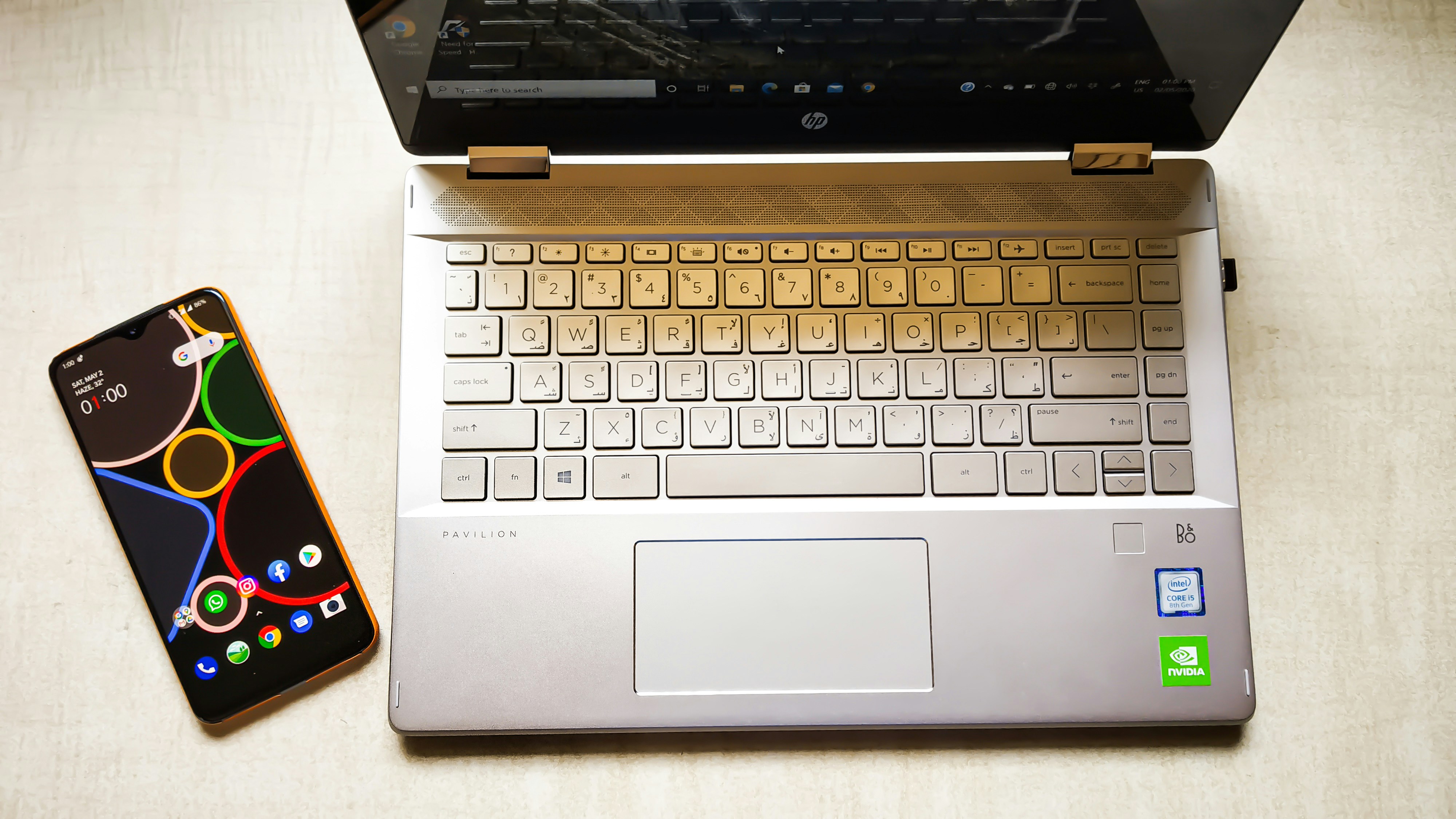National Teacher Appreciation Day
Browse categories

When it comes to any national appreciation day, it's true that the figures that we're usually appreciating should receive the same recognition and respect every other day of the year. So rather than spend this National Teacher Appreciation Day preaching the value of teachers, we thought we'd spend it highlighting an association that actually does support their teachers every other day of the year---the Computer Science Teachers Association.

Led by K-12 computer science teachers, establishing a supportive environment is one of CSTA's main objectives, either by creating local communities across the U.S and Canada, hosting the largest teacher-led computer science professional development event each year, or even providing access to exclusive discounts on courses and tools. So whether you are a computer science teacher in a school or district that is filled with other teachers in the same field, or you're the only one, you won't feel alone.
Of course, being part of a community also means recognizing where there may be gaps, and promptly filling them. The CSTA's Equity Fellowship program is geared to do that just: provide leadership development opportunities for equitable teaching practices and advocacy, so that everyone can receive the same amount of support to pursue a computer science career or path. So to finally bring this long-winded introduction to its close, we'd like to recognize the 2020-21 cohort of the CSTA Equity Fellowship, and all the work they put in, today, and every other day of the year:
Megan Bowen, currently the Technology Coordinator and Integration Specialist while also teaching AP Computer Science, Digital Citizenship, Film and Video, and 3D Design at Salem Academy Charter School in Salem, Massachusetts. As a member of the queer community, Megan was accepted into the 2015 White House LGBTQ Tech and Innovation Summit to collaborate in identifying technology and computer science needs as they relate to the LGBTQ community.
Sarah Ciras is in her 11th year of teaching special education, and 7th year of teaching computer science at Landmark School in Beverly, Massachusetts. She works with AccessCSForAll in a research practitioner partnership on the National Science Foundation grant, AccessCSforAll: Including Students with Disabilities in High School Computer Science. As part of this grant, she is helping to facilitate a week-long professional development program for educators.
Eric Foster is in his second year of teaching computer science at George Westinghouse High School in Brooklyn, New York. He prides himself on connecting computer science concepts to cultural references without pandering. He has worked with CodeNation, Girls Who Code, All Star Code, and is a supporter of many more.
Shaina Glass is currently the Program Director of Technology Applications & STEM in Aldine Independent School District in Houston, Texas. Shaina's impact on STEM across school districts, and within the education community are noteworthy. She provides instructional support to CS teachers as well as coaches, co-teaches with, and facilitates hands-on professional development for Pre-K to 12th-grade teachers and, to date, has reached over 6,000 students in computer science. She also is currently the president of CSTA Greater Houston Chapter as well as a CS policy advocate and lead learner as a Code.org Regional Program Manager with Rice University School Mathematics Project.
Mayné González Osorio is the founder and former president of the CSTA Puerto Rico Chapter from 2017-2019 and is currently serving as Relations Manager. For the past 3 years, she has worked as a technology teacher at Jose E. Aponte De La Torre School. She has participated in various events promoting the advancement of CS in Puerto Rico, including the first PD of Mobile CSP in Puerto Rico in 2019 and Exploring Computer Science. Mayné has provided CS workshops to teachers and students through CSTA Puerto Rico and has collaborated in the creation of a CS curriculum with the University of PR and the Department of Education. She recently participated in an online event known as Codifi-K, which emerged from the collaboration with Televisa Foundation, Infosys, and Cuantrix, which was focused on providing programming experiences to Spanish-speaking families. Mayné believes and understands that inclusion is important and equal access education in CS must be for all.
Deb Harding is a middle school computer science teacher at STEM Launch in Thornton, CO. She began her career in 1988 as a math teacher and established a computer lab for students to explore computer science. Deb established the Family MakerSpace to help reduce the digital divide and has received $40,000 in grants over the last few years. She is proud of the amazing solutions that her students are developing. In 2019, two of her middle school teams earned first and third place in the Congressional App Challenge for creating their Safe Space and Immigration apps.
Shiela Lee is a special education teacher entering her 10th year of teaching. After spending a year teaching in Taiwan on a Fulbright Fellowship, she spent the next 8 years integrating computer science into her second-grade classroom in New York City. This upcoming year, she is the STEM teacher and is excited to help her students see their identities in the field of CS. Shiela is also a self-taught coder who has coded tools for teachers to use in their classroom, including a tool for stations teaching and an interactive hundreds chart to see mathematical patterns. She is committed to creating curriculum that is anti-racist and empowering her students to challenge stereotypes. Shiela is a Math for America Master Teacher Fellow and an Upperline Code Teaching Fellow.
Lilibeth Mora is an equity teacher leader and instructional coach in Vallejo, California. She spent 15 years in the field of education developing connections with students, constantly learning how to improve her craft, and sharing best practices with others. Within the last few years, Lilibeth became a chapter leader for CSTA Sacramento and discovered a new passion in education--ensuring that all students have the opportunity to take a computer science course in high school and to change the demographics of who’s making programs, software, and artificial intelligence that is changing the way we live.
ElizabethNaameh teaches high school math and computer science, with a focus on equity and engagement. She founded the AP Computer Science program at USC Hybrid High and lectures at UCLA through the AP Readiness Program, which brings high-quality AP instruction to students and professional development for teachers throughout Los Angeles. Elizabeth is a committed advocate for girls and students of color in STEM, working to expand notions of "who" does CS. She has received training through AP CS 50, Code.org, and TEALS.
Having received her master’s degree in urban education with a specialization in reading and after 14 years of teaching experience, Laura Ramirez realized she loved teaching technology skills and pursued many certifications and credentials in tech and computer science. Currently, she is National Board Certified and is the Tech Integration Specialist at a Spanish bilingual K-8 school in the Mission district of San Francisco. Having seen how hesitant her students (girls and BIPOC) struggled to coexist with technology and computer science concepts, she created a space where girls and gender-expansive students were comfortable taking risks to solve problems. The Tech Chicas/Chicxs group was born and an army of young girls resurrected to fix the school’s tech issues and learn growth mindset skills. She is a member of the SF Film Inclusion Advisory Board to improve the Board of Directors’ cultural competency skills, diversity, and refine strategy for providing filmmakers programs, and educational outreach.
Dominick Sanders is a computer science teacher in Nashville, Tennessee. In 2019, he founded the first Computer Science Honor Society (CSHS) in Tennessee. Dominick knows first hand the importance of representation. One of his favorite quotes is “You can be what you can’t see.” Keeping that quote in mind, he founded Xposure STEM. Xposure STEM is a non-profit organization designed to empower, expose, and equip underserved boys and girls to become leading contributors to the world of science, technology, engineering, and math.
Leon Tynes teaches technology and computer science to K-8 students at the Academy of Math and Sciences - Desert Sky charter school in Phoenix, Arizona. He is working to transform STEM education within the diverse community that he serves through student participation in STEM challenges, student innovation, and scientific advocacy. Leon has secured a number of STEM grants to support his recent efforts such as Infymakers, McCarthey Dressman, and Verizon Innovative Learning. He was also an AP CSP reader for the past four years. His accolades awards include 2016 Henry Ford Teacher Innovator award, 2016 PBS Digital Innovator, 2017 Grosvenor Teacher Fellow (Galapagos), 2017 ISTE Technology in Action award, 2018 Fulbright Teachers for Global Classrooms Fellow (Morocco), 2018 ISTE Outstanding Teacher, 2019 Jacobs Educator award, 2019-20 CS for All Teachers Ambassador, 2019 CS for All Teachers Ambassador & 2019 CSTA/Infosys Honorable Mention for Teaching Excellence.
Dr. John Underwood is currently an Instructional Specialist of STEM Programs in East Baton Rouge Parish Public Schools. He has taught middle and high school since 2003 and helped to create a research partnership to develop statewide STEM CS pathways for 7-12 students in Louisiana. His research interests include increasing the equity in and access to high-quality computer science education for all students. John is also working to establish rigorous and high-quality professional development to help novice K-12 teachers gain content and pedagogical CS knowledge. John has aided in developing Louisiana’s first Career Technical Education pathway for computer science. He is working with an NSF and EIR grant to make a 7-12 course pathway accessible to all schools in his state.
James Winn is a library/media specialist at Wyoming Indian High School in Ethete, Wyoming. After a first life of IT work (30+ years), he needed a change. His second life began in a Code.org Fundamentals training where he learned that less than 1% of college grads come from the Native American population. This is an untapped resource for America. With this passion for representing his Native heritage, James earned his teaching certificate. Being able to share, inspire, and educate students about the opportunities in CS is now a lifelong pursuit. Through CS, all students everywhere and from every background have the ability to compete on a world stage and come to understand how important they are.
Eboni Akpan Zook teaches Computer Science and Technology and facilitates a Girls Who Code Club at the Baltimore Leadership School for Young Women (BLSYW), an all-girls public charter school in Baltimore City, Maryland. Eboni is passionate about increasing STEM learning opportunities for young women of color and students from under-resourced communities. Eboni is entering her ninth year as an educator and recently partnered with the Maryland Center for Computing Education (MCCE) to create a unit of Early Childhood Computer Science curriculum integrated with Next Generation Science Standards. As a Code.org CS Fundamentals Facilitator, Eboni has trained hundreds of elementary school teachers in CS curriculum.
If you're interested in CSTA's mission, or in learning more from its members, register for their annual conference this summer (July 14-July 16).









